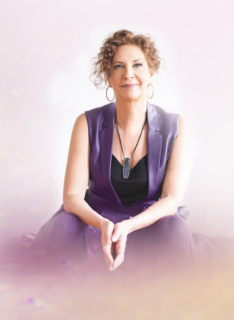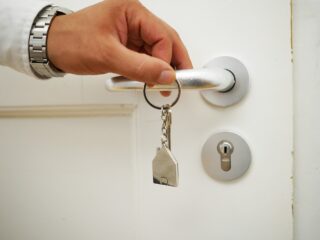
You’ve heard of spring cleaning, but what about summer redesigning?
With the sunny season approaching, rearrange your home applying feng shui principles.
Nancy Parker, a personal and environmental energy specialist; healer and feng shui practitioner of more than 20 years, describes feng shui as a study of the relationship between “the environment and human life, the person that’s living in the space.”
“Feng shui is the art and science of balancing and harmonizing the flow of natural energies in a space or in our surroundings to create beneficial effects for a better lifestyle, ” she said.
According to National Geographic, it’s an ancient Chinese practice that stems from early Taoism and translates to “the way of wind and water.”
Kezhen Fei, a board member and former teacher of Rockland Chinese School, shared that when she was growing up, her grandparents incorporated feng shui principles into their lifestyle by inviting specialists into their home.
“That would be a big day because a lot of good food would be prepared. The specialist would be treated like God,” she said. “Usually this happened when a new house was built or a tomb needed a good location.”
Taoists believe in chi, the life force that inhabits everything, which is made up of yin and yang elements.
Parker says that feng shui is all about balance and that one can maximize life potentials by manipulating the environment focusing on both the physical —lighting and furniture— and metaphysical — the energy itself— aspects.

“A space can have an excessive yin or an excessive yang energy, ” she said.
Parker describes yin energy as more feminine and still, relating to nighttime, whereas yang is more masculine and active, relating to daytime.
Yin and yang elements can be applied to the type of furniture itself.
For example, Parker describes yang furniture as pieces with harder surfaces and more elevated off the ground.
“A piece of furniture where you can see the legs and underneath would be considered more of the yang airy kind of furniture, ” she said.
Rugs can be added around elevated furniture to slow the chi, or energy, down.
“You would want your bedroom to be more yin, whereas a living room, you might want it to be more active,” she said.
However, Parker added that there should be a balance of both in all rooms.
If a room were to have more yin energy, then that person occupying the space may feel more sleepy and less motivated to get tasks done.
In contrast, a room with more yang energy, may be too brightly lit and may make individuals feel too anxious.
There are two ways in which one can dictate the arrangement of furniture using feng shui principles: the bagua map, which is a more Western approach, and the compass school, which is more traditional.

The compass school and bagua map may not always be in sync.
“I look from both aspects and I see where the power is,” she shared.
The compass school uses the compass direction.
When one uses the bagua method, a map is placed over the entire floor plan.
“That dictates which colors are best for which area, ” Parker said.
It also defines which elements belong in the different sectors.
For example, if one’s best interest was in the north, as it represents career and life path, one may want to focus on decor and furniture with blue, black, gray or metallic colors.
If one were to put red, which is fire energy, in the north section, it wouldn’t be beneficial as that belongs in the south section of the bagua map.
Elements also intertwine with the actual furniture pieces themself, such as mirrors.
.”Whatever the mirror sees, it doubles, ” Parker said. “Mirrors don’t absorb, but they’re activators.”
They symbolize water energy, so one should definitely avoid putting it in the south as it would put out its fire energy.
Parker suggests putting mirrors in the north, east, and southeast, but never in front of a door as the energy will bounce back out.
Another key idea of feng shui is the command position, which Parker describes as having the ability to see the door, so “there’s no surprises coming to you.”
This should be applied to both the placement of the sofa in a living room and one’s bed.
“Having your bed, the headboard against a window, is not beneficial at all, ” she said. “We like to have a bed up against a wall for good solid support behind.”
One is not always able to do the perfect configuration according to feng shui principles, but there are cures and remedies.
For example, one can use a mirror when lying in bed, so they have a visual of whoever is walking into the room.
Parker added, however, that there is an ancient Chinese belief that couples shouldn’t place their mirror directly in front of the bed because it may cause them to fight a lot.
Another belief is that one shouldn’t place their bed directly in front of the door as it is called the “death position.”
She agrees to not place the bed in front of a door as it acts as a gateway to chi that’s constantly moving, so one may feel restless.
If one has no other choice, it’s best to keep the door shut at night.
The command position also overlaps with the perfect house placement, but is referred to as “mountain behind.”
A person that has a house that’s placed with mountain energy, similarly to command position, has the front with a full view of what and who is approaching them, of course, with a good support from behind.
Parker says that a house that sits on a flat property or slight slope going towards the house is also beneficial.
However, a house on a cliff where the whole back of the house drops off with no support from behind, can cause one’s fortune to go down.
In one instance, Parker had a client with a beautiful house on a slope, but in order to enter, one must drive up to the back of the house.
The client eventually went bankrupt.
As for businesses, she suggests a location with more fast moving chi, such as a busy street.
“If your house was close to a busy road it might feel unsettling because you’re going to feel that movement from an energetic standpoint, so sleeping might be a little bit hard, ” she said.

As for those who reside in New York City, Parker says that their focus may be to create a more peaceful environment.
Although one may not have the perfect arrangement using feng shui principles, it’s possible to apply them to any living space, even tiny ones, including dorms or studios.
For excited college freshmen who are already planning their dorm room style, Parker recommends having storage underneath the bed, but to only store clothing and not school books.

Whatever one’s living arrangement may be, it is important for one to pay attention to their main entrance, ensuring that the door is able to open fully, as this is known as “the main mouth of chi.”
“We always want your entrance to be clutter free and inviting, ” Parker said.
All entrances should also be well lit.
“Sometimes in apartments or studios maybe you don’t have as many choices, but at the very least, if there’s like a beautiful image —it could be a painting or photos from loved ones or friends—, anything that makes you feel uplifted and happy is what the entrance should be,” she said.
She added that the most crucial aspect is to love everything in your space and encourages everyone to clean out their closets, removing items that do not match who you are today.
“ Our homes are like our second bodies and they need to be the right fit in order to assist us on our life path,” Parker said. “Let’s say you are going to a special event and want to feel really confident and filled with vitality. You would not wear an old outdated dress or suit that did not fit or did not represent you well. You would want to feel amazing and shine your inner light bright.”
Those interested can visit her website at theempowermentfrequency.com.

You must be logged in to post a comment Login